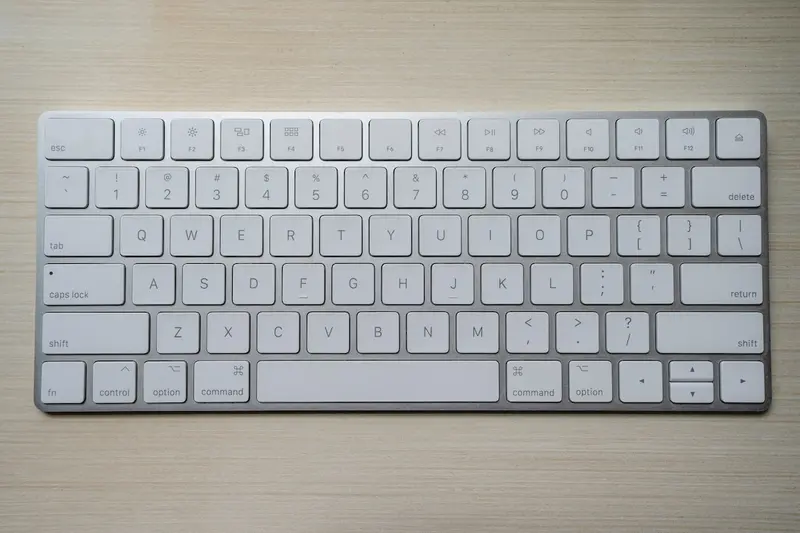⌨️ Troubleshooting Alpine Linux Keyboard Problems: Simple Guide
Having trouble with your keyboard on Alpine Linux? Don’t worry! 😊 This guide helps you fix keyboard problems quickly and easily. We’ll get your keys working perfectly! 💻
🤔 What are Keyboard Problems?
Keyboard problems happen when your keys don’t work correctly or show wrong characters. It’s like your keyboard is speaking a different language!
Common keyboard issues are like:
- 📝 Wrong characters appearing when you type
- 🔧 Some keys not working at all
- 💡 Keyboard layout is incorrect for your country
🎯 What You Need
Before we start, you need:
- ✅ Access to Alpine Linux system (even with limited keyboard)
- ✅ Basic understanding of terminal commands
- ✅ Knowledge of your correct keyboard layout
- ✅ Access to the command line interface
📋 Step 1: Check Current Keyboard Settings
View Current Configuration
Let’s see what keyboard settings you have right now! 😊
What we’re doing: Looking at your system’s current keyboard configuration.
# Check current keyboard layout
localectl status
# View available keyboard layouts
localectl list-keymaps | head -20
# Check X11 keyboard settings
setxkbmap -print -verbose 10What this does: 📖 Shows your current keyboard layout and available options.
Example output:
System Locale: LANG=en_US.UTF-8
VC Keymap: us
X11 Layout: usWhat this means: Your keyboard is set to US English layout! ✅
💡 Important Tips
Tip: The VC Keymap controls console keyboard, X11 Layout controls desktop! 💡
Warning: Wrong layout can make typing very difficult! ⚠️
🛠️ Step 2: Install Keyboard Tools
Add Keyboard Management Packages
Alpine Linux needs special tools for keyboard management. Let’s install them! 😊
What we’re doing: Installing the programs needed to manage keyboard settings.
# Install keyboard configuration tools
apk add kbd
# Install X11 keyboard tools (if using desktop)
apk add setxkbmap
# Install console tools
apk add console-setup
# Check installation
loadkeys --helpCode explanation:
kbd: Main keyboard management packagesetxkbmap: X11 keyboard layout toolconsole-setup: Console keyboard configuration
Expected Output:
Usage: loadkeys [options] [mapfile ...]What this means: Great! Keyboard tools are ready to use! 🎉
🔧 Step 3: Fix Console Keyboard Layout
Set Correct Keyboard Map
Time to set the right keyboard layout for your console! This is important! 🎯
What we’re doing: Changing your console keyboard to match your country.
# List available keyboard maps
ls /usr/share/kbd/keymaps/i386/qwerty/
# Load US keyboard layout
loadkeys us
# Load UK keyboard layout
loadkeys uk
# Load German keyboard layout
loadkeys de
# Make it permanent
echo 'KEYMAP="us"' > /etc/conf.d/keymapsCode explanation:
loadkeys us: Sets US English keyboard layout/etc/conf.d/keymaps: File that saves keyboard settings- Different countries have different keyboard layouts
Good output looks like:
✅ Keyboard layout changed successfully🛠️ Step 4: Fix X11 Desktop Keyboard
Configure Desktop Keyboard
If you’re using a desktop environment, let’s fix that too! Here’s how:
What we’re doing: Setting the correct keyboard layout for your desktop.
# Set US keyboard for X11
setxkbmap us
# Set UK keyboard for X11
setxkbmap gb
# Set German keyboard for X11
setxkbmap de
# Check current X11 settings
setxkbmap -query
# Make it permanent
echo 'setxkbmap us' >> ~/.xinitrcWhat this does: Fixes keyboard layout for desktop applications! 🌟
Test Keyboard Layout
Let’s make sure everything is working properly:
What we’re doing: Testing that keyboard keys produce correct characters.
# Test typing in terminal
echo "Testing keyboard: abcdef 123456"
# Test special characters
echo "Special chars: @#$%^&*()"
# Test your layout-specific keys
echo "Test your country's special keys here"Code explanation:
- Type these commands to verify keyboard works
- Check that special characters appear correctly
📊 Quick Summary Table
| Layout | Command | Best For |
|---|---|---|
| 🔧 US English | loadkeys us | ✅ United States, English speakers |
| 🛠️ UK English | loadkeys uk | ✅ United Kingdom, British English |
| 🎯 German | loadkeys de | ✅ Germany, QWERTZ layout |
| 🌐 French | loadkeys fr | ✅ France, AZERTY layout |
🎮 Practice Time!
Let’s practice what you learned! Try these simple examples:
Example 1: Switch Between Layouts 🟢
What we’re doing: Testing different keyboard layouts to find the right one.
# Try US layout
loadkeys us
echo "Test typing with US layout"
# Try UK layout
loadkeys uk
echo "Test typing with UK layout"
# Set back to your preferred layout
loadkeys usWhat this does: Helps you find the perfect keyboard layout! 🌟
Example 2: Fix Stuck Keys 🟡
What we’re doing: Resetting keyboard when some keys stop working.
# Reset keyboard state
kbd_mode -a
# Reload keyboard layout
loadkeys us
# Test all keys work
echo "Testing: qwertyuiop[]"What this does: Fixes keyboard when keys get stuck or confused! 📚
🚨 Fix Common Problems
Problem 1: Wrong characters when typing ❌
What happened: Keyboard layout doesn’t match your physical keyboard. How to fix it: Set correct keyboard layout!
# Check available layouts
localectl list-keymaps | grep -i us
# Set correct layout
loadkeys usProblem 2: Some keys don’t work ❌
What happened: Keyboard driver issues or physical problems. How to fix it: Reset keyboard system!
# Restart keyboard service
rc-service keymaps restart
# Reload keyboard layout
loadkeys us
# Check if keys work nowProblem 3: Desktop and console different ❌
What happened: X11 and console have different keyboard settings. How to fix it: Set both to same layout!
# Set console keyboard
loadkeys us
# Set X11 keyboard
setxkbmap us
# Make both permanent
echo 'KEYMAP="us"' > /etc/conf.d/keymaps
echo 'setxkbmap us' >> ~/.xinitrcDon’t worry! These problems happen to everyone. You’re doing great! 💪
💡 Simple Tips
- Know your keyboard type 📅 - US, UK, German layouts are different
- Test after changes 🌱 - Always verify keyboard works correctly
- Make settings permanent 🤝 - Save changes so they survive reboots
- Keep it simple 💪 - Start with basic layouts first
✅ Check Everything Works
Let’s make sure everything is working:
# Test keyboard layout
echo "Keyboard test: The quick brown fox jumps over the lazy dog"
# Test numbers and symbols
echo "Numbers: 1234567890"
echo "Symbols: !@#$%^&*()"
# Check current settings
localectl status
echo "Keyboard is working perfectly! ✅"Good output:
Keyboard test: The quick brown fox jumps over the lazy dog
Numbers: 1234567890
Symbols: !@#$%^&*()
KEYMAP=us
Keyboard is working perfectly! ✅🏆 What You Learned
Great job! Now you can:
- ✅ Check and understand current keyboard settings
- ✅ Install keyboard management tools properly
- ✅ Set correct keyboard layout for console and desktop
- ✅ Fix common keyboard problems quickly!
🎯 What’s Next?
Now you can try:
- 📚 Learning about custom keyboard shortcuts
- 🛠️ Setting up multilingual keyboard switching
- 🤝 Configuring special function keys
- 🌟 Building custom keyboard layouts for special needs!
Remember: Every system administrator was once a beginner. You’re doing amazing! 🎉
Keep practicing and you’ll become an expert too! 💫




